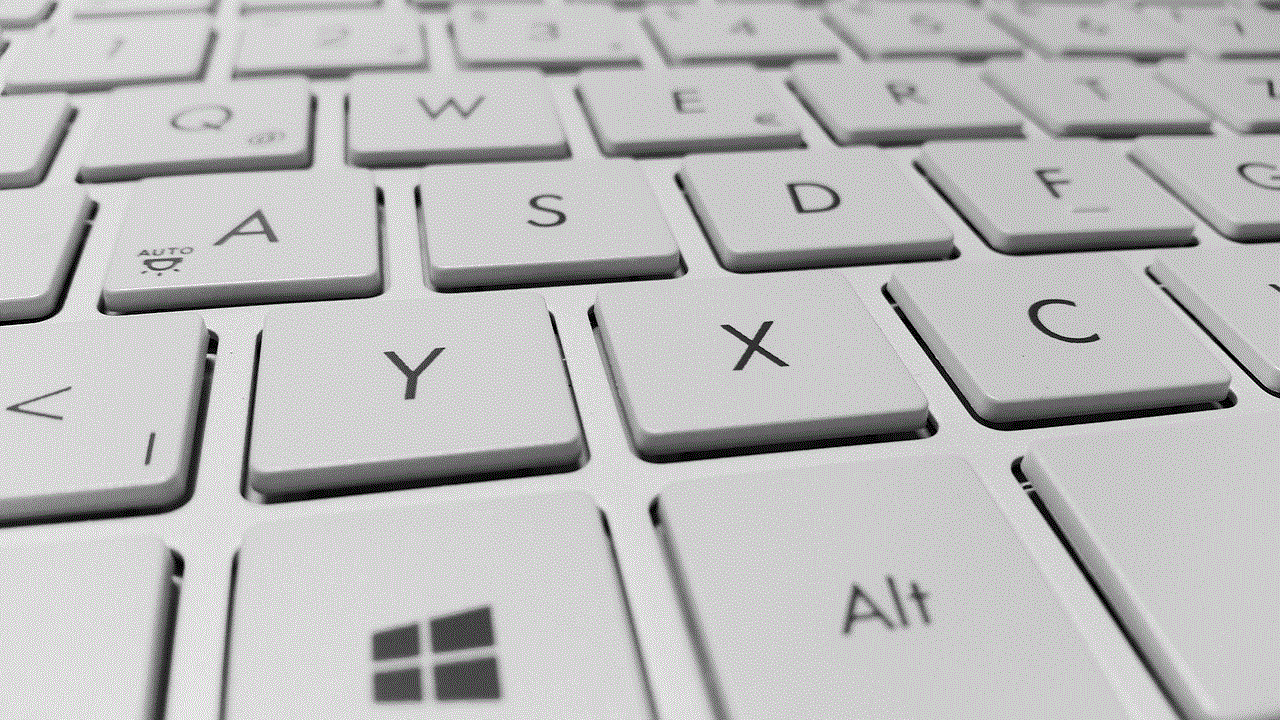ion meaning urban dictionary
The word “ion” has been around for centuries, but it wasn’t until the 20th century that it took on a new meaning in urban dictionary. With the rise of technology and scientific advancements, the term “ion” has become a popular term in everyday language. From skincare to air purifiers, the word “ion” is used to market products and services that claim to have some sort of positive impact on our lives. But what does “ion” actually mean in urban dictionary? In this article, we’ll delve into the origins of the word, its definition, and how it has become a buzzword in modern times.
Before we dive into the urban dictionary meaning of “ion,” let’s take a look at its etymology. The word “ion” is derived from the Greek word “ion,” meaning “going.” In ancient Greece, it was used to describe a person’s journey or a voyage. The term was later adopted by chemists in the 19th century to describe electrically charged atoms or molecules. This scientific definition of “ion” is still widely used today, but in urban dictionary, the word has a slightly different connotation.
According to urban dictionary, the word “ion” is defined as “a slang term used to describe something or someone that is great, amazing, or awesome.” It is often used as a suffix to other words to emphasize the positive qualities of a person or thing. For example, if someone says “That car is ion,” they mean that the car is incredibly cool and impressive. Similarly, if someone says “That burger was ion,” they mean that the burger was exceptionally delicious.
The use of “ion” as a slang term can be traced back to the early 2000s when it was popularized by hip-hop and rap music. Rappers often used “ion” in their lyrics to describe something that was cool or impressive. From there, the term spread to other forms of media and eventually became a part of everyday language. Today, you can find the word “ion” being used in social media posts, advertisements, and even in everyday conversations.
But why has the word “ion” become so popular in urban dictionary? One reason could be because it is a short and catchy word that is easy to remember. It’s also versatile and can be used in various contexts, making it a popular choice among young people. Additionally, the term has a positive connotation, which makes it appealing to use in everyday language.
Another reason for the popularity of “ion” in urban dictionary could be its association with technology and modern living. As mentioned earlier, the word has its roots in science and has been used to describe electrically charged particles. In modern times, “ion” is often used to describe products and services that claim to have some sort of positive impact on our lives. For example, you may have seen advertisements for “ion” air purifiers or “ion” skincare products. These products use the term to market themselves as being technologically advanced and beneficial to our health and well-being.
The rise of social media and the use of hashtags has also contributed to the popularity of “ion” in urban dictionary. The hashtag #ion has been used over 1 million times on Instagram alone, with many people using it to describe their experiences or possessions. For example, someone may post a picture of their new car and use the hashtag #ion to describe how amazing it is. This use of #ion has further solidified the word’s association with something that is cool and desirable.
However, like most slang terms, the use of “ion” in urban dictionary is subjective and can vary depending on the context and the person using it. Some people may use it to describe something that is truly impressive, while others may use it sarcastically to mock something that they don’t find particularly great. It’s also worth noting that the word is more commonly used among younger generations and may not be as prevalent among older generations.
In conclusion, the word “ion” has taken on a whole new meaning in urban dictionary. From its origins in ancient Greece to its use in modern times, the word has evolved to become a popular slang term used to describe something or someone that is great, impressive, or cool. Its association with technology, social media, and modern living has made it a buzzword in everyday language. Whether you love it or hate it, there’s no denying that “ion” has become an integral part of urban dictionary. So the next time you see or hear someone use the word, you’ll know exactly what they mean.
can you track a phone
The advancement of technology has made our lives easier in many ways, one of which is the ability to track a phone. Gone are the days where losing your phone meant losing all your contacts, messages, and important information. With the rise of GPS and other tracking technologies, it is now possible to locate a phone with just a few clicks. But the question remains, can you track a phone? The answer is yes, and in this article, we will go into detail on how you can do it.
The concept of tracking a phone may seem like something out of a spy movie, but in reality, it is a feature that is widely available for personal and professional use. It is a useful tool for parents who want to keep an eye on their children’s whereabouts, for employers who want to monitor their employees’ movements, and for individuals who have lost their phone or have it stolen. Let’s take a closer look at how you can track a phone.
First and foremost, it is important to understand that tracking a phone is only possible if the phone is turned on and has an active internet connection. This is because the tracking relies on the phone’s GPS and data connection to send its location data to a tracking device or application. If the phone is turned off or does not have an internet connection, it is not possible to track it.
Now, the most common way to track a phone is through the use of GPS (Global Positioning System). GPS is a satellite-based navigation system that provides real-time location and time information. Almost all smartphones have a built-in GPS chip, which allows it to receive signals from the GPS satellites and determine its location. This technology is used in various navigation and mapping applications, but it can also be used for tracking a phone.
To track a phone using GPS, you need to have a tracking device or application installed on the phone. Some of the popular tracking apps include Find My iPhone for iOS devices, Find My Device for Android devices, and Find My Mobile for Samsung devices. These apps allow you to track the phone’s location, remotely lock or wipe the phone, and even make it ring to help you locate it if it is nearby.
Apart from GPS, there are also other ways to track a phone. One of them is through cell tower triangulation. This method uses the phone’s signal strength to determine its location by triangulating it between nearby cell towers. It is not as accurate as GPS, but it can still give you a general idea of the phone’s location. This method is often used by law enforcement agencies to track down suspects or missing persons.
Another way to track a phone is through Wi-Fi positioning. This method uses the phone’s Wi-Fi connection to determine its location by comparing the Wi-Fi networks nearby. This is similar to how GPS works, but instead of using satellite signals, it uses Wi-Fi signals. Wi-Fi positioning can be more accurate than cell tower triangulation, but it requires the phone to be connected to a Wi-Fi network.
Now, let’s address the question of whether it is legal to track a phone. The answer is not a straightforward yes or no. The legality of tracking a phone depends on the purpose and the laws of the country you are in. For example, it is legal for parents to track their minor children’s phones for safety reasons. Similarly, employers can track their employees’ phones if they have given prior notice and consent. However, it is illegal to track someone ‘s phone without their knowledge or consent, and it can be considered a violation of privacy.
Apart from the legal aspects, there are also ethical considerations when it comes to tracking a phone. While it can be a useful tool, it can also be seen as an invasion of privacy. It is important to have a valid reason and consent before tracking someone’s phone. Moreover, the data collected through tracking should only be used for the intended purpose and not be misused in any way.
One of the most common misconceptions about tracking a phone is that it can be done only by law enforcement agencies or government authorities. The truth is that anyone with the right technology and knowledge can track a phone. As mentioned earlier, there are various tracking apps available for personal use, and there are also professional tracking services that offer more advanced features and capabilities. These services are often used by businesses to track their fleet of vehicles or by individuals to track their lost or stolen phones.
Now, let’s talk about the limitations of tracking a phone. As mentioned earlier, the phone needs to be turned on and have an active internet connection for tracking to work. This means that if the phone is turned off or the battery dies, it cannot be tracked. Moreover, the accuracy of the tracking depends on the available technology and the signal strength. In some cases, the tracking may not be accurate due to factors like poor signal or interference.
Another limitation of tracking a phone is that it can be disabled by the user. Most tracking apps and services can be turned off or uninstalled by the user, which means that the phone cannot be tracked anymore. This is often done by someone who does not want to be tracked or wants to maintain their privacy. Additionally, there are also tools and techniques available to prevent tracking, such as using a Faraday cage or turning off location services .
In conclusion, yes, you can track a phone, but it is not as simple as it seems. It requires the phone to be turned on and have an active internet connection, and it also depends on the available technology and the accuracy of the signal. While it can be a useful tool, it is important to use it ethically and legally. If you are planning to track a phone, make sure you have a valid reason and consent from the person you are tracking. And remember, with great power comes great responsibility.
d��nde esta mi telefono



En la era de la tecnología, los teléfonos móviles se han convertido en una parte esencial de nuestras vidas. Son nuestras agendas electrónicas, cámaras, reproductores de música, sistemas de navegación y mucho más. Nos mantienen conectados con nuestros seres queridos y nos permiten acceder a una gran cantidad de información en cualquier momento y lugar. Por eso, cuando perdemos nuestro teléfono, es una sensación de pánico e incertidumbre.
“¿Dónde está mi teléfono?” se ha convertido en una de las preguntas más frecuentes en la actualidad. Ya sea que lo hayamos perdido en nuestra propia casa o en algún lugar público, la sensación de no saber dónde está nuestro dispositivo puede ser frustrante y preocupante. Además, los teléfonos móviles son una inversión costosa y perderlos no solo significa perder un dispositivo sino también perder todos los datos importantes que tenemos en él.
En este artículo, exploraremos algunas de las formas en las que podemos encontrar nuestro teléfono perdido y cómo podemos proteger nuestros dispositivos en caso de futuras pérdidas.
1. Utilizar aplicaciones de seguimiento de teléfonos móviles
Una de las formas más eficaces de localizar un teléfono perdido es a través de aplicaciones de seguimiento de teléfonos móviles. Estas aplicaciones se pueden descargar en la mayoría de los dispositivos y permiten a los usuarios rastrear la ubicación de su teléfono en caso de pérdida o robo.
Una de las aplicaciones más populares es Find My iPhone, disponible para dispositivos iOS. Esta aplicación utiliza la función de ubicación del teléfono para mostrar en un mapa la ubicación exacta de tu dispositivo. Además, también ofrece la opción de reproducir un sonido en el teléfono para ayudarte a encontrarlo si está cerca y cuenta con una opción de bloqueo remoto para evitar que alguien más acceda a tu información.
Otra aplicación útil es Android Device Manager, que funciona de manera similar a Find My iPhone pero para dispositivos Android. Esta aplicación también te permite ver la ubicación de tu teléfono en un mapa, hacerlo sonar y bloquearlo de forma remota para proteger tus datos.
2. Hacer uso de la función de “Encontrar mi dispositivo” en Google
Si tienes un teléfono Android y no tienes instalada la aplicación de seguimiento de Android, aún puedes encontrar tu dispositivo utilizando la función de “Encontrar mi dispositivo” en Google. Todo lo que necesitas es una cuenta de Google y tener habilitado el historial de ubicaciones en tu teléfono.
Para utilizar esta función, simplemente inicia sesión en tu cuenta de Google en cualquier dispositivo y busca “Encontrar mi dispositivo”. Serás dirigido a un mapa que mostrará la ubicación de tu teléfono en tiempo real. Además, también puedes hacer que tu teléfono suene, bloquearlo o borrar toda la información en él de forma remota.
3. Utilizar la función de “Encontrar mi dispositivo” en iCloud
Si tienes un dispositivo iOS, puedes usar la función de “Encontrar mi dispositivo” en iCloud para localizar tu teléfono perdido. Al igual que en Google, necesitas tener una cuenta de iCloud y tener habilitada la función de ubicación en tu teléfono.
Para usar esta función, simplemente inicia sesión en tu cuenta de iCloud en cualquier dispositivo y selecciona “Encontrar mi iPhone”. Serás dirigido a un mapa que mostrará la ubicación de tu teléfono y también puedes hacer que suene, bloquearlo o borrar toda la información en él de forma remota.



4. Pídele ayuda a tus amigos y familiares
Si no has tenido éxito con las opciones anteriores, otra forma de encontrar tu teléfono perdido es pidiendo ayuda a tus amigos y familiares. Puedes pedirles que llamen a tu teléfono o que te ayuden a buscarlo en lugares donde crees que puede haberlo perdido. A veces, es más fácil encontrar un teléfono con la ayuda de otras personas.
5. Revisa tus registros de llamadas y mensajes
Si no tienes acceso a otro dispositivo para rastrear tu teléfono, puedes revisar tus registros de llamadas y mensajes para ver si hay alguna pista sobre dónde puede estar tu dispositivo. A menudo, podemos recordar el último lugar donde usamos nuestro teléfono al ver nuestras últimas llamadas o mensajes.
6. Visita lugares donde hayas estado recientemente
Si recuerdas haber utilizado tu teléfono en un lugar específico antes de perderlo, es una buena idea visitar ese lugar y preguntar si alguien lo ha encontrado. Puedes dejar tu información de contacto en caso de que alguien lo encuentre más tarde. Si el lugar es una tienda o un restaurante, también puedes preguntar si tienen cámaras de seguridad que puedan haber captado a alguien tomando tu teléfono.
7. Utiliza redes sociales para pedir ayuda
Las redes sociales pueden ser una herramienta útil para encontrar tu teléfono perdido. Puedes publicar en tus cuentas de redes sociales que has perdido tu teléfono y pedirle a tus amigos y seguidores que te ayuden a encontrarlo compartiendo tu publicación. También puedes unirte a grupos locales de Facebook o Twitter y pedir ayuda a la comunidad para encontrar tu dispositivo.
8. Registra tu teléfono perdido
Si has intentado todas las opciones anteriores y aún no has encontrado tu teléfono, es importante registrar tu dispositivo como perdido en la compañía de tu operador de telefonía móvil. Al hacerlo, tu teléfono será bloqueado y nadie podrá utilizarlo o acceder a tu información. Además, si alguien encuentra tu teléfono, tu operador de telefonía móvil podrá contactarte para devolvértelo.
9. Asegúrate de tener un respaldo de tus datos
En caso de que no puedas encontrar tu teléfono perdido, es importante tener un respaldo de tus datos importantes. Puedes utilizar servicios de almacenamiento en la nube como iCloud o Google Drive para hacer copias de seguridad de tus fotos, contactos y otros documentos importantes. De esta manera, si pierdes tu teléfono, no perderás toda tu información valiosa.
10. Aprende de la experiencia



Perder un teléfono puede ser una experiencia estresante, pero también puede ser una lección para ser más cuidadoso en el futuro. Asegúrate de tener una contraseña segura en tu dispositivo y no lo dejes desatendido en lugares públicos. También es importante tener un seguro para tu teléfono en caso de pérdida o daño.
En resumen, perder un teléfono puede ser una experiencia desagradable, pero con las opciones y medidas de precaución adecuadas, podemos encontrar nuestro dispositivo perdido o proteger nuestros datos en caso de futuras pérdidas. Recuerda siempre tener un respaldo de tus datos y mantener tu teléfono seguro para evitar situaciones estresantes en el futuro.
